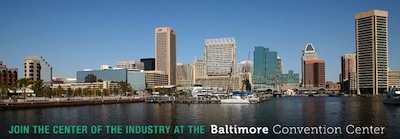The ACI Home Energy Leadership Summit – Big Thinking for Our Industry

The ACI Home Energy Leadership Summit is an event sorely needed in our industry. Most of us focus almost entirely on understanding building science and figuring out the best home energy improvement measures or assessment techniques, but stepping back and looking at the big picture is critical. Tied to the ACI national conference, this summit is the place where that happens.
If you’ve been a reader of this blog for a while, you know I look at the big picture regularly. From the very first article I wrote here, I’ve discussed the details and ramifications of peak oil, for example. In January, I asked the questions, What’s Your Energy Ideology? and Will the Independent Home Energy Auditor Become Extinct? Seeing the big picture is essential.
At the Leadership Summit, you’ll get the opportunity to hear some high level discussion of the what’s going on in the world of home energy. After the keynote address on Leadership Skills for the 21st Century by Joel Barker, the two-day summit will have the following sessions:
- The Future of Energy Efficiency as a Resource
- How Utilities Can Value Energy Efficiency as a Resource
- Financing Energy Efficiency: A Path to Scaling Up Investment
- The Future of Contractor Business Models
- Tactics of Innovation: How to reduce resistance to new ideas
- Selling Energy Efficiency to Homeowners: Models for the Future
Think your business is doing fine and you don’t need to think about this? I suggest that you might want to re-evaluate that thought and consider registering for the Home Energy Leadership Summit. If you can’t make it, though, do this: Download and read ACI’s white paper, The Home Performance Industry: Road-Map to a Sustainable Future.
This week I’m on a thousand mile trip doing quality assurance for our certified HERS raters, and I can tell you that this kind of thinking is absolutely necessary. Some raters are doing well and getting lots of work, and others are doing all the same things but aren’t seeing the same kind of results. Some of it depends on location, but what we’re doing is so important that we need to figure out how to make this work everywhere.
It’s hard to tell from the session descriptions above, but I hope they’ll discuss the huge challenges we face with energy—and especially liquid fuels—this century. Yes, petroleum matters for home energy use, even for those of us who don’t heat with fuel oil. Peak oil is huge, at least as important as climate change. I’d also love to see some discusssion of the idea that we must have a growing economy, and what happens when the growth premise fails.
Kudos to the folks at ACI for putting this event together! See you in Balitimore.
This Post Has 3 Comments
Comments are closed.

Allison,
Allison,
I agree that the “big-picture” stuff is too often overlooked.
Climate change and net-energy decline are generally about as popular to think about as a scary-looking mole on your back.
And the end of growth is simply anathema to oh so many.
Funny how the things we least want to think about are the very things we should be thinking about the most.
I have been trying to attend
I have been trying to attend this conference for the past couple of years. Hopefully next year will be the year.
Well said as usual AB. &
Well said as usual AB.
The summit agenda is an excellent one, and the six sessions you list are indicative of how big this topic is for even two full days. Those who know me know that my particular passion is the full range of how we communicate–everything from lack of conviction for what we call our industry (is it home performance?) to how we sell homeowners across the kitchen table. We are making awesome progress for sure, but the educational challenge we face to make retrofits ubiquitous remains a big one.
For those attending Baltimore interested in these topics, a group of us will be discussing them informally before and after the formal sessions, most likely in the bar.